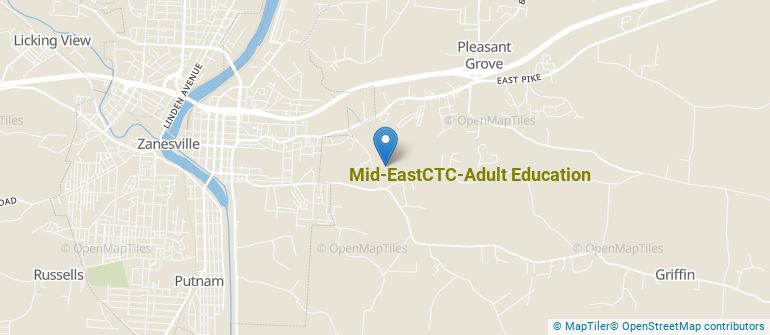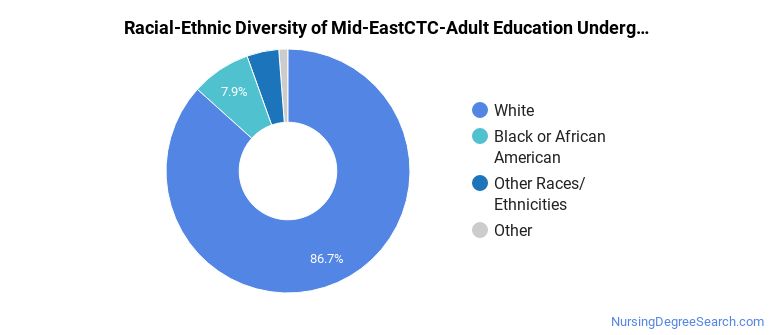Mid-EastCTC-Adult Education Nursing Programs
Located in Zanesville, Ohio, Mid-EastCTC-Adult Education is a public institution. The rural area surrounding the school is great for students who prefer living in a country setting.
Where Is Mid-EastCTC-Adult Education?

Contact details for Mid-EastCTC-Adult Education are given below.
| Contact Details | |
|---|---|
| Address: | 400 Richards Rd, Zanesville, OH 43701 |
| Phone: | 740-455-3111 |
| Website: | adulted.mideastctc.org |
How Do I Get Into Mid-EastCTC-Adult Education?
You can apply to Mid-EastCTC-Adult Education online at: https://mec.axstudent.com/#/categories
Can I Afford Mid-EastCTC-Adult Education?
Student Loan Debt
Almost 66% of college students who graduated with the class of 2018 took out student loans, but that percentage varies from school to school. At Mid-EastCTC-Adult Education, approximately 23% of students took out student loans averaging $5,693 a year. That adds up to $22,772 over four years for those students.
Mid-EastCTC-Adult Education Undergraduate Student Diversity
Gender Diversity
Of the 165 full-time undergraduates at Mid-EastCTC-Adult Education, 56% are male and 44% are female.

Racial-Ethnic Diversity
The racial-ethnic breakdown of Mid-EastCTC-Adult Education students is as follows.

| Race/Ethnicity | Number of Grads |
|---|---|
| Asian | 1 |
| Black or African American | 13 |
| Hispanic or Latino | 1 |
| White | 143 |
| International Students | 0 |
| Other Races/Ethnicities | 7 |
Mid-EastCTC-Adult Education Nursing Concentrations
The table below shows the number of awards for each concentration.
| Major | Basic Certificate | Undergraduate Certificate | TOTAL |
|---|---|---|---|
| Nursing Assistant/Aide and Patient Care Assistant/Aide | 69 | 0 | 69 |
| Other Practical Nursing, Vocational Nursing and Nursing Assistants | 0 | 36 | 36 |
| Registered Nursing | 0 | 22 | 22 |
| TOTAL | 69 | 58 | 127 |
References
*The racial-ethnic minorities count is calculated by taking the total number of students and subtracting white students, international students, and students whose race/ethnicity was unknown. This number is then divided by the total number of students at the school to obtain the racial-ethnic minorities percentage.
More about our data sources and methodologies.
